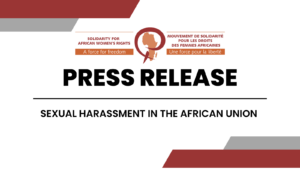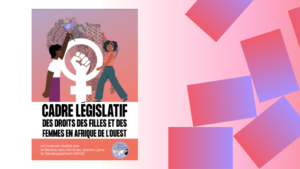
Press Release: SEXUAL HARASSMENT IN THE AFRICAN UNION (AU)
Download English Press Release The Solidarity for African Women’s Rights is a coalition of over 70 civil society organizations working across 33 countries. SOAWR works to ensure that the rights of girls and women as articulated in the Protocol to the African Charter on Human and Peoples’ Rights on the Rights of Women in Africa (“the Maputo Protocol”) are prioritized by policymakers on the African continent. On the heels of celebrating two decades of promoting and protecting the rights of women and girls in Africa, we are dismayed to learn of the alleged sexual harassment of the Bilingual Secretary of



